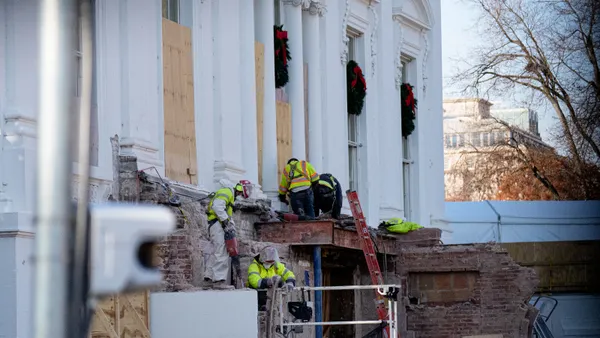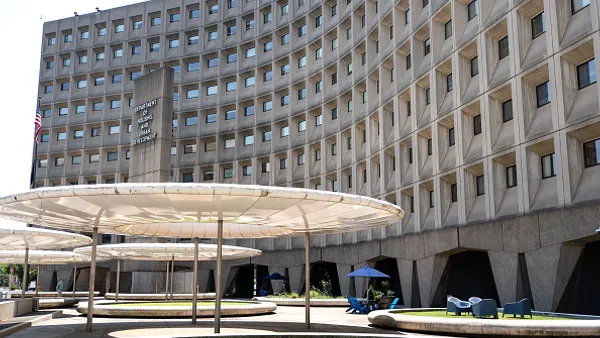Firefighters in Tennessee are battling more than flames lately as they fight with legislators—and the state’s homebuilders—over whether the government should require fire sprinklers in new townhomes.
The state Senate earlier this month voted to repeal all local government ordinances that require sprinkler systems in townhomes attached to two or more other townhomes.
The measure has ignited a familiar firestorm between builders, who say adding sprinklers raises the price of a home by $5,000 to $15,000, and fire officials, who argue that safety is more important than cutting costs.
"It's not about money. It's about saving lives," Danny Beeler, a fire marshal for the city of Knoxville, told a local TV station.
Jeff Burkhart, vice president of the Homebuilders’ Association of Tennessee, countered that claim, saying that adding less-expensive firewalls between the buildings or taking other safety measures would be a better option than sprinklers to stop the spread of fires and keep costs down.
A lengthy debate
The controversy has been heating up since 2009, the first time the International Residential Code called for mandatory fire sprinklers in all new single-family residences. Three subsequent editions of the code, including the one that took effect on Jan. 1, have included the fire sprinkler requirement.
The code is a model, and states are not bound to follow it. In fact, only California, Maryland and the District of Columbia have adopted the provision to require fire sprinklers in newly built single-family and duplex homes. Those three plus seven other states mandate the devices in new townhomes. Minnesota earlier this year adopted the requirement for single-family homes larger than 4,500 square feet. New Jersey’s Legislature has adopted a fire sprinkler measure, but the governor has not signed it. And a proposal to add the mandate has just been introduced in Connecticut, while Texas lawmakers have proposed requiring sprinklers in high-rises.
Some states have passed laws forbidding cities from requiring sprinklers, while others allow officials in local jurisdictions to decide for themselves.
The builders' stance
However, homebuilders say the decision belongs to homeowners, not to governments.
"We're not against residential fire sprinklers—as a voluntary measure," an NAHB spokesman told Popular Mechanics. "A building code provides the minimum balance between cost, safety and welfare. You could do everything to the nth degree and get 100 percent safety, but that's not the purpose of the code."
Homebuilders in Minnesota have taken their challenge to court. The Builders Association of the Twin Cities sued the state in February, claiming Minnesota’s adoption of the IRC’s sprinkler provision will add up to $10,000 to the cost of an average new home and almost $20,000 to the price of a 4,500-square foot home. Like Burkhart, the Minnesota builders argued that other safety measures would be just as effective, but less expensive. The association has asked the court to at least delay the rule.
“Several parts of the new code are placing a cost on homeowners that far exceeds the benefit of the new code,” BATC Past President Shawn Nelson said in a statement. “It is safe to say that the new code may create the largest regulatory tax on home buyers in Minnesota history.”
Unintended consequences
In Tennessee, one mayor isn’t waiting for the state Legislature to repeal his town’s fire sprinkler mandate.
La Vergne Mayor Dennis Waldron told a local TV station that a year-old requirement to include sprinklers in new homes and commercial buildings was driving developers away to other cities.
“The people I’ve talked to that are ready to build, ready to buy, are telling me if we don’t redo this ordinance they’re going to Smyrna,” Waldron told News 2.
The firefighters' position
Still, firefighters and safety advocates are pushing against the Legislature’s effort to negate local ordinances—which includes an amendment to allow municipalities to reinstate their laws if their City Councils want to.
The U.S. Fire Association has argued that sprinklers reduce the chances that someone will die in a house fire by 69%, and when combined with smoke alarms, can prevent 82% of those deaths.












